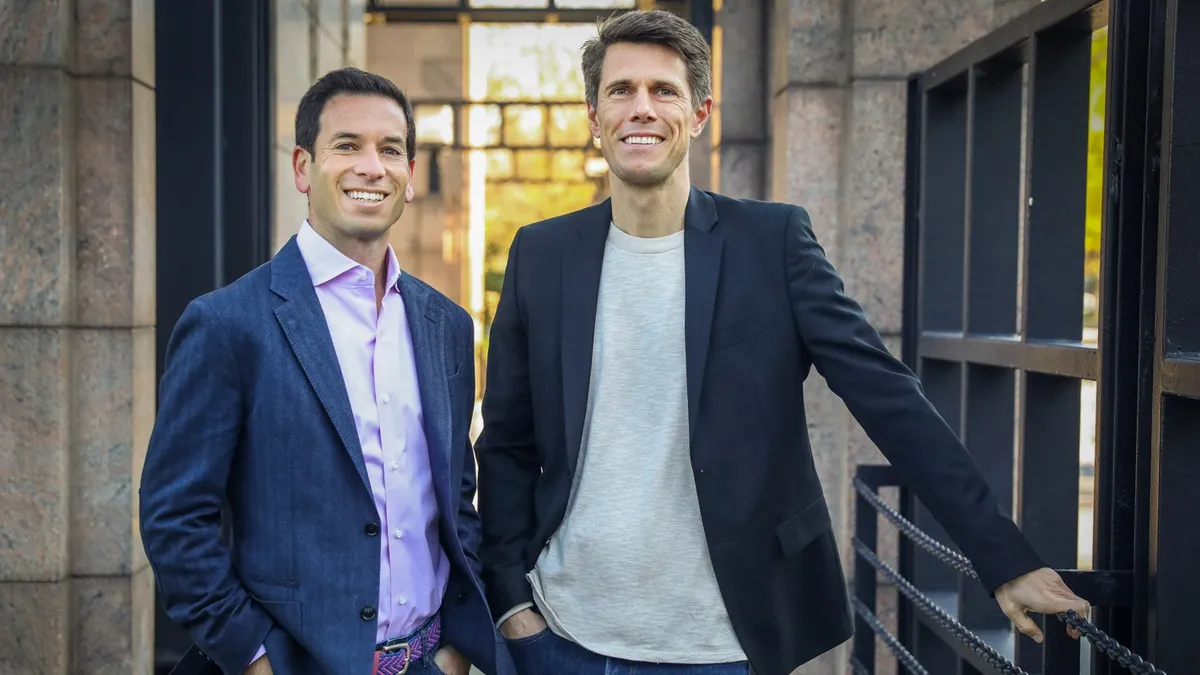Dive Brief:
-
Cedar, a digital medical billing fintech company, agreed to acquire OODA Health, a healthcare bill aggregator software company servicing healthcare providers, payers and insurance agencies, for $425 million. The acquisition is expected to close this month, subject to required regulatory approvals.
-
The merger between the two companies will help digitize healthcare bills and payments and reduce administrative processes, making it easier for patients to pay bills and save them from surprise charges, OODA Health Co-founder and Co-CEO Seth Cohen told Payments Dive.
-
Cedar's digital bill payment platform helps ease healthcare payments through many tech advances such as QR code-based payment. Customers receive a bill with a QR code, which they can scan to pay via their Apple wallet, Cedar CEO Florian Otto told Payments Dive.
Dive Insight:
On the heels of fueling its growth by raising another $200 million in March for $350 million in total capital, Cedar said it will buy OODA Health for $425 million using cash and equity, though it didn't disclose the split.
Cedar and OODA aim to help customers better manage their healthcare bill payments, removing pain points, including lack of coordination with different medical billers and bills provided in languages customers don't understand.
According to a 2020 study conducted by Forrester Group on behalf of Cedar, one in 10 U.S. consumers say they won't pay their bills if they don't understand the administrative process, and 84% of US adults were concerned about paying their health care costs in the next year.
The combined services of the two companies will help educate customers about their medical bills and save them from surprise charges, Cohen said. Over 26% of U.S. residents say they've avoided getting treatment or visiting a doctor because they were unsure how much their insurance would cover. The merged platform will let consumers understand their out-of-pocket costs and get faster digital responses regarding their bills. The Forrester research also showed that 28% of consumers want their billing questions answered more quickly.
"Our joined services will help customers understand and stay on top of their medical bills," Cohen said. "We are very proud of building a set of capabilities that involve and integrate the payer into the picture so that a patient doesn't have to wonder what the provider [hospitals/doctors] and payer [health plan/HMO] is doing, they can receive a single consolidated bill with all the information they need."
The merger comes at a time when customers are getting used to telemedicine and digital health care, as 52% of patients have seen better healthcare due to virtual care and better administrative services, the Forrester study for Cedar said. The study was based on a survey of 1,500 American healthcare consumers.
The pandemic accelerated telemedicine and digital healthcare experiences and adoption. Cedar launched QR code-based payments for medical bills and the usage has increased since its launch last year. The QR code adoption can be attributed partly to customers using them in restaurants for menus and bill payments, Otto said.
"During Q3 and Q4 [last year], there was a huge adoption increase because health systems wanted to move forward with adopting technology," Cohen said. "We made some changes in our platform, during this crisis like sharing a statement after stimulus."
Other payment providers like Splitit and Affirm have shown interest in providing buy now,pay later (BNPL) healthcare payment options to consumers.
OODA is expected to process over $80 million in 2021 per their current estimates and it engages with 5,000 to 6,000 consumers per week, on average, according to Cohen. Last year, Congress passed the No Surprise Act, which saves consumers from the cost of unanticipated out-of-network medical bills, with the exception of ground ambulance transport.
The companies are trying to provide a better healthcare billing process to customers due to the current methods being "disjointed" and "clunky," Cohen said. The Forrester research said 44% of customers want more telemedicine options white 41% want more digital form and communication methods.
Cedar's Otto will continue to serve as chief executive of the combined company, while Cohen will stay on as president and join Cedar's board of directors.













